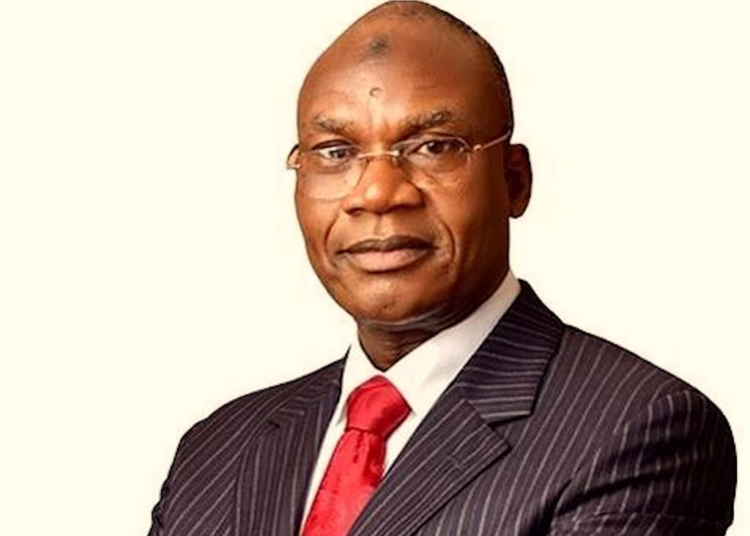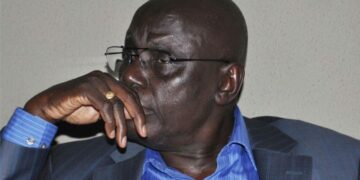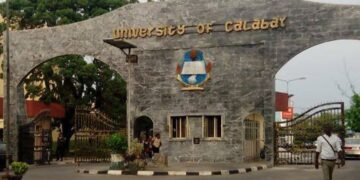As primary and secondary schools nationwide resume for a new academic session, most parents and guardians throughout the country are grappling with the added burden of schools’ decisions to raise tuition fees, findings by LEADERSHIP Data Mining Department have shown.
This fee hike coincides with a period of dwindling disposable incomes for families, primarily due to galloping inflation in the prices of goods and services across the nation triggered by the removal of petrol subsidy.
Parents of tertiary institution students have voiced their concerns about the high tuition fee increases in some Nigerian universities. These universities, in turn, attribute the 100 to 200 percent fee hikes to insufficient financial support from the government and the high inflation rate.
And despite the government’s efforts to implement scholarships for underprivileged students, many students remain uncertain about their educational prospects.
Also, tensions are on the rise across various universities as students voice their discontent with recent hikes in school fees and other charges, staging protests nationwide. For example, students of the University of Jos recently took to the streets to protest the increased fees and service costs imposed by the institution.
The protesters, led by the Student Union Government, demanded an immediate reversal of the fee hikes. Carrying placards bearing messages like “If your children can afford the money, we can’t” and “We don’t want to drop out of school,” the students conveyed their grievances.
They stressed that Nigerians were already grappling with significant economic hardships, and further fee increases would exacerbate the situation. The students’ peaceful demonstration caused traffic disruptions as they blocked roads leading to the university campus.
Similarly, at the University of Lagos (UNILAG), tension escalated on campus as the National Association of Nigerian Students (NANS) supported the students’ decision to plan protests. In fact, NANS recently issued a 48-hour ultimatum to the University of Lagos management to reverse the fee hikes and refund affected students.
NANS also called upon all tertiary institutions and Unity Schools across the country to refrain from raising school fees, warning that they were ready to mobilise its members nationwide to protest such actions. This stance was announced during a press conference held at the International Press Centre, Lagos, following the disruption of their peaceful protest by the police at UNILAG.
Prior to this, NANS had protested a more than 300 percent increase in school fees at the Edo State-owned Ambrose Alli University, Ekpoma. While gathered at the premises of the Nigerian Union of Journalists (NUJ), Edo State Council, the students demanded an immediate fee review for the sake of peace.
One student from the institution, Shuaib George, pointed out that the new tuition fees made AAU the most expensive public university in Nigeria, with law students expected to pay N741,500, compared to the previous N185,000, and medical science students now facing N638,000 instead of N216, among other increases.
LEADERSHIP’s investigations revealed that rising living costs and operational expenses are limiting access to education, making it unaffordable to many parents.
Private schools have hiked fees for primary and secondary students by over 300 percent, fueling concerns that a significant number of pupils may not return to schools. Some parents are contemplating enrolling their children in public schools, while others are uncertain about the next steps, raising fears of a surge in the number of out-of-school children.
According to a parent in Kano, Mallam Abubakar Umar, many schools, particularly those with boarding facilities, have announced substantial fee increases to cope with the effects of rising fuel prices, increased transportation costs, and other overheads.
He said, “While some parents acknowledge that annual fee increases have become the norm for most private schools, others argue that the fee hikes are a response to the prevailing economic situation characterised by rising inflation and the depreciation of the national currency.
‘‘Don’t forget that the federal government had announced a significant review of fees in the Unity Colleges, with fees increasing from N45,000 to N100,000. This change affects various aspects of school expenses, including tuition, boarding, uniforms, textbooks, and more.’’
Another parent in Abuja, Maryam Bello, said some schools in the Federal Capital Territory (FCT) and across the states have quietly increased their fees and logistics charges, causing frustration among parents.
For instance, a top secondary school in Gwarinpa, Abuja, raised fees from N1.8 million per term to N2.87 million, while another popular secondary school at Games Village, also in Abuja, increased fees for junior students from N3.8 million to N4.5 million.
In response to these fee hikes, parents are calling on both the government and school proprietors to reconsider their decisions. They emphasize the need for transparency and a fair balance between quality education and affordability, as many parents are finding it increasingly challenging to cope with the rising costs of education, including fees and the prices of school materials.
Speaking with LEADERSHIP, a resident of Port Harcourt, Grace Wogu, said she had so far spent over ₦40,000 on her children who are returning to school for the 2023/ 2024 academic session.
Wogu said, “My daughter, who is my last child, is returning to a government secondary school and so far I have spent over ₦40,000. I know that the fee may increase later but that is what I have paid so far.”
On his part, another resident, Okoloma Grant, said her two sons who are undergraduates at the Ignatius Ajuru University of Education (IAUE) could not immediately return to school due to recent increase in school fees.
Grant said: “Outside my first son who is in Level One at the University, I have three daughters who are in secondary school. Considering the amount of fees at the University, I asked my son to wait a little while so that I can take care of his sisters’ school fees. You know that there is an increase, especially in private schools where three of them attend.”
The Kano State government had stopped all private schools in the state from increasing their school fees by revoking their licences and asking them to reregister.
There are new rules that will be binding on them as they re-register their schools, part of which disallows increases in school fees.
The special adviser to the Kano State government on Private and Voluntary Institutions, Baba Abubakar Umar, in a recent meeting with private schools’ proprietors, announced that all the schools are expected to collect new registration forms to fill out for new certificates to be issued.
Some of the parents, who spoke to LEADERSHIP, expressed gratitude that there is no increase in the tuition of the private schools.
Kaltuma Muhammad is a mother with two children in a private school who appreciates the stoppage of school fees increase.
“This is a very nice development and I am very happy that the school fees are not increased. We pray other things that have inflated will come down,” she said.
However, some parents see justification in the hike of the school fees in private schools due to general economic problems in the country that has led to inflation in the prices of goods and services.
Bashir Yusif, a parent whose children are in a private school said, “It is not wise to disallow private schools from increasing their fees because they have invested in what they are doing.
“There is over 100 percent inflation in the prices of goods and services in the country and the school owners are part of this reality,” he said.
Meanwhile, 7000 students, who are state indigenes at the Bayero University, Kano (BUK), will receive scholarships worth N700 million.
A parent who has two children at BUK complained that the over 100 percent increase in the school fees is too much.
Abdussalam Muhammad said, “I have two kids in the university. I used to pay about N100,000, but now with the increase I am paying about N250,000.”
On the other hand, state-owned tertiary institutions will benefit from a 50 percent decrease in school fees.
The state’s commissioner for education, Dr Yusuf Kofar Mata, said the reduction affects all Kano State indigenes studying regular courses for the 2023/2024 academic session at institutions which include Aliko Dangote University of Science and Technology, Wudil (ADUST), Yusuf Maitama Sule University, (YUMSUK), Kano, and Sa’adatu Rimi University of Education.
Others are Kano State Polytechnic, Aminu Kano College of Islamic and Legal Studies, Audu Bako College of Agriculture Danbatta, Rabiu Musa Kwankwaso College of Advanced and Remedial Studies, Tudun Wada, and Kano State College of Education.
He said the decision is in line with the state government’s commitment to education development and to also restate the state government’s commitment to pay N3.6 billion for foreign scholarships for over 1,000 students.
The commissioner for information Baba Halilu Dantiye confirmed to this reporter that the state government is taking all these steps to ensure that it reduces the hardship the people are facing.
“The government has stopped the private schools from increasing school fees, is paying N700 million worth of scholarship for 7000 Kano indigenes of BUK, has reduced 50 percent of tuition for tertiary institutions owned by the state and is paying N3.6 billion for about 1,000 students schooling abroad.
“All these are necessary to arrest the hardships being faced by the populace” he stated.
In Ondo State, some school proprietors have attributed the increase in tuition fees to the present state of the economy in the country.
Those who spoke with LEADERSHIP said the materials used in the schools for teaching and learning have also increased in price.
The proprietor of Achievers Primary and Nursery School in Akure, the state capital, Mr. Wale Fajoye, said apart from teaching materials, the staff of the school is also yearning for an increment in salary due to the present situation in the country.
He said, “Presently in the country, we cannot do without the increase in the tuition fee. The economy is so bad to the extent that some materials bought last academic session have increased in price. Apart from that, the staff working in the school also need additional payment into their salaries. The maintenance of the school and other expenses have also gone up. So, we need it at this time.”
But a parent, Toyin Ogunleye, described the increase in the school fees at this critical stage in the country as a huge burden on the parents.
He said, “We didn’t know what we were going to face when we supported the present administration’s quest for the removal of fuel subsidies. Everything has now gone up as if the ground should swallow us. Where do they want us to get all this money? The salary has not been increased. Despite that, everything, including food, school fees and books, has gone up. Government should find something to do urgently, or else, the situation may degenerate into what we do not pray for.”
In Lagos State, some schools have increased their fees, while other have made no marginal increase.
Akin Fadeyi, Board Advisor, Chrisland Schools Limited, said that the school has been operating under harsh business terrain, adding that the increase in school fees is justified.
He said. “Owing to the fact that our nation’s economy has been challenged for a while, we have been operating under an inclement business climate. In the same vein, our standard operative practice is to continue to stimulate creativity and productivity in our students, making sure they compete globally. We have a proven track record that this has been achieved. To hold fast to this momentum, we equally have to make decisions that engender entrepreneurship sustainability, hardly profit driven but to keep above waters.”
For Mrs. Augustina Alheri, a cleaner who earns N40,000 per month, relocating her children to Lagos public schools is a viable option.
Mrs Salome Kolawole who has three children in Kindred Nursery and Primary Schools, said economic hardship is really hitting deep into their family.
Mrs Kolawole noted that she is not changing her wards from the present school because the management has been kind to the parents, especially those with multiple children.
Mrs Biola Ukairo who is a school teacher and resides in Ejigbo area of Lagos said she and her children have put austerity measures in place to ensure they spend less and not purchase what is not needed at home.
In Ogun State, management of public institutions as well as proprietors of private schools in Ogun State have blamed increase in school fees on what they described as “the reality of the economy.”
Also speaking with our correspondent, the Proprietress of Goodness Kiddies Nursery and Primary School, Federal Housing Estate, Olomoore, Abeokuta, Mrs. Olubukola Azeez blamed the situation on the current pump price of petroleum products which she said forced prices of materials needed to run schools up.
“So, we have no alternative than to increase the cost of the school fee”.
In Oyo, an educationist and president, Educational Legacy College (ELC), Dr. Ibraheem Saka Ominiwe identified the high inflation in the country as the cause of increase in school fees in either primary, secondary or tertiary institutions.
A parent, Ogundele Mutiu said considering the economic situation in the country, the school fees increase was expected.
In Osogbo, Osun state, the proprietor of A2 Group of Schools, Iragbiji, Osun State, Elder Olusesan Alonge has blamed the 30 per cent increase in school fees of students of the schools across board on high cost of living in the country.
Reacting to the increase in school fees just made available by the authorities of her children’s school, Mr Adegbola Abdulazeez said he had no option but to withdraw his children from private school to public school.
In Ekiti the situation is not different, most schools, especially private schools in Ekiti state have increased their fees.
Speaking to LEADERSHIP in Ado Ekiti, the proprietor of Wonder Kids Group of Schools, Mr Oluwole Ekundayo said the hike came as a result of the current increase in prices of goods and services.
“Prices of everything have gone up, some by 200 percent, and we need more money for us to run the school effectively.
“Our staff also demanded an increase in their pay, we have to consider this and do something because we all know what is happening in the country now, if not they will leave the school for another.”





